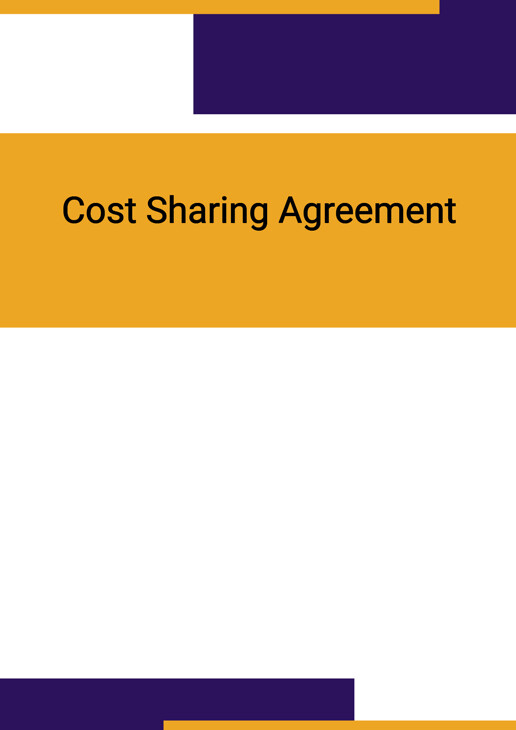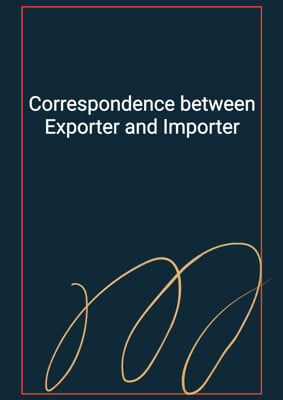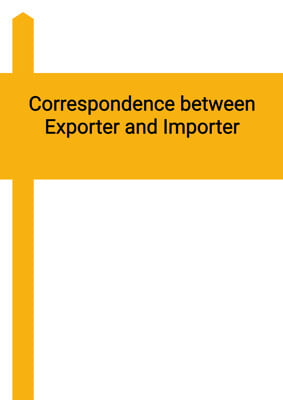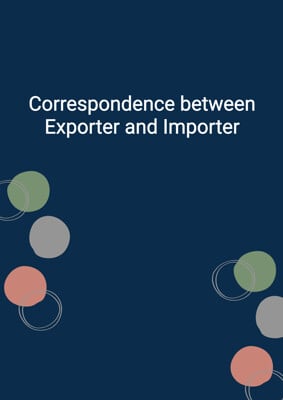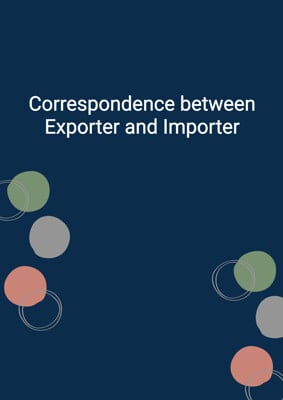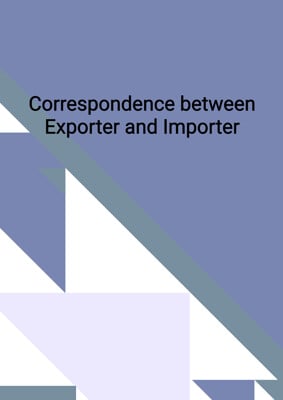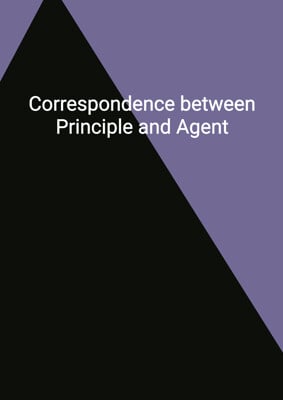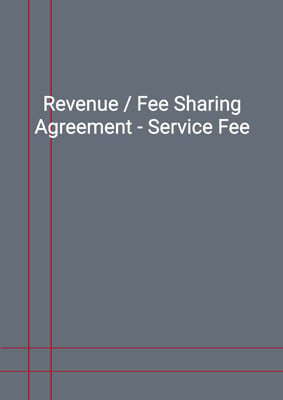How to Tailor the Document for Your Need?
01
Create Document
Fill in the details of the parties. You can click the "Fill with Member’s Information" button to complete it with information saved to your account.
02
Fill Information
Please fill in any additional information by following the step-by-step guide on the left hand side of the preview document and click the "Next" button.
03
Get Document
When you are done, click the "Get Document" button and you can download the document in Word or PDF format.
04
Review Document
Please get all parties to review the document carefully and make any final modifications to ensure that the details are correct before signing the document.
Document Preview
Document Description
The Cost Sharing Agreement is a document that outlines the terms and conditions for a cost-sharing arrangement between two parties, referred to as the Servicer and the Company. The importance of this document lies in its ability to establish a clear understanding of the shared costs and services provided by the Servicer to the Company. It ensures that both parties are aware of their obligations and responsibilities in relation to the activities covered by the agreement.
The entire document is divided into several sections, each serving a specific purpose. The first section, titled 'Interpretation,' provides definitions for key terms used throughout the agreement. This ensures that both parties have a common understanding of the terminology used.
The second section, titled 'Term,' specifies the duration of the agreement. It outlines whether the agreement has a fixed term or is indefinite, and the conditions for renewal or termination. This section ensures that both parties are aware of the duration of their obligations under the agreement.
The third section, titled 'Shared Costs Services,' outlines the services that the Servicer will provide to the Company. It distinguishes between direct services, which involve the direct delivery of activities, and indirect services, which support and manage the delivery of activities. This section ensures that both parties understand the scope of services provided.
The fourth section, titled 'Reimbursement of Shared Costs,' establishes the reimbursement process for the Company. It specifies the method and frequency of reimbursement, as well as any additional costs that may be incurred by the Servicer. This section ensures that both parties are aware of the financial obligations associated with the shared costs.
The fifth section, titled 'Payment of Shared Costs,' outlines the payment terms for the Company. It specifies the invoicing process, payment due dates, and any applicable interest charges for late payments. This section ensures that both parties understand the payment obligations and consequences.
The sixth section, titled 'Books and Records,' requires the Servicer to maintain accurate records of the services provided. It also grants the Company the right to inspect these records. This section ensures transparency and accountability in the cost-sharing arrangement.
The seventh section, titled 'Confidentiality,' establishes the obligations of both parties to keep any confidential information shared during the agreement confidential. It also addresses the ownership of intellectual property rights and the handling of infringement claims. This section ensures the protection of sensitive information.
The eighth section, titled 'Limitation of Liability,' limits the liability of both parties for any damages or losses arising from the agreement. It specifies that the Servicer's liability is limited to correcting any negligent performance of services, while the Company's liability is limited to the total sums payable to the Servicer. This section protects both parties from excessive liability.
The ninth section, titled 'Extent of Undertakings,' clarifies the limitations of the Servicer's obligations. It states that the Servicer will only provide services that it is able and free to provide, and that certain conditions may apply to the provision of services. This section ensures that both parties have realistic expectations regarding the services provided.
The tenth section, titled 'Force Majeure,' addresses the parties' obligations in the event of circumstances beyond their control that prevent the fulfillment of the agreement. It allows for temporary suspension of performance and requires prompt notification of such circumstances. This section protects both parties from liability in unforeseen circumstances.
The eleventh section, titled 'Notices and Service,' specifies the methods and timings for delivering notices between the parties. It ensures effective communication and timely receipt of important information.
The twelfth section, titled 'General,' includes various general provisions, such as restrictions on mortgage or assignment of rights, the independent contractor status of the parties, waiver of rights, and the severability of provisions. These provisions clarify the rights and obligations of the parties and ensure the enforceability of the agreement.
The thirteenth section, titled 'Termination,' outlines the conditions under which either party can terminate the agreement. It specifies the notice period and the consequences of termination, such as settlement of outstanding fees.
The fourteenth section, titled 'Consequences of Termination,' further clarifies the effects of termination, including the continuation of certain provisions and the absence of compensation for loss of rights or goodwill.
The fifteenth section, titled 'No Rights under Contracts for Third Parties,' states that only the parties to the agreement have the right to enforce its terms. This section prevents third parties from claiming rights under the agreement.
The sixteenth and final section, titled 'Law and Jurisdiction,' encourages the parties to resolve any disputes amicably. It also specifies the jurisdiction for legal proceedings if a resolution cannot be reached. This section ensures that any disputes are handled in a fair and appropriate manner.
In summary, the Cost Sharing Agreement is a comprehensive document that establishes the terms and conditions for a cost-sharing arrangement between the Servicer and the Company. It covers various aspects, including the duration of the agreement, the services provided, reimbursement of costs, payment terms, confidentiality, liability limitations, termination conditions, and dispute resolution. By providing a detailed framework, this agreement ensures that both parties have a clear understanding of their rights and obligations, promoting a fair and mutually beneficial cost-sharing arrangement.
How to use this document?
To use the Cost Sharing Agreement effectively, follow these steps:
1. Interpretation: Familiarize yourself with the definitions provided in the agreement. This will ensure a common understanding of the terminology used throughout the document.
2. Term: Determine the duration of the agreement. If the agreement has a fixed term, note any conditions for renewal or termination. If the term is indefinite, be aware of the termination clause.
3. Shared Costs Services: Identify the specific services that the Servicer will provide to the Company. Differentiate between direct services, which involve the direct delivery of activities, and indirect services, which support and manage the delivery of activities. Make sure the scope of services aligns with your needs.
4. Reimbursement of Shared Costs: Understand the reimbursement process for the Company. Note the method and frequency of reimbursement, as well as any additional costs that may be incurred. Ensure that you are aware of your financial obligations and the basis for cost allocation.
5. Payment of Shared Costs: Familiarize yourself with the payment terms. Take note of the invoicing process, payment due dates, and any applicable interest charges for late payments. Ensure that you adhere to the payment schedule to avoid any penalties.
6. Books and Records: Be aware that the Servicer is required to maintain accurate records of the services provided. Understand your right to inspect these records and ensure transparency in the cost-sharing arrangement.
7. Confidentiality: Respect the confidentiality obligations outlined in the agreement. Safeguard any confidential information shared during the course of the agreement and seek appropriate permissions before disclosing such information to third parties.
8. Limitation of Liability: Understand the limitations of liability for both parties. Note that the Servicer's liability is limited to correcting any negligent performance of services, while the Company's liability is limited to the total sums payable to the Servicer. Be aware of the potential risks and take necessary precautions.
9. Extent of Undertakings: Recognize the limitations of the Servicer's obligations. Understand that the Servicer will only provide services within its capabilities and subject to certain conditions. Manage your expectations accordingly.
10. Force Majeure: Be prepared for circumstances beyond your control that may hinder the fulfillment of the agreement. Promptly notify the other party of any such circumstances and work towards resolving the situation.
11. Notices and Service: Follow the specified methods and timings for delivering notices between the parties. Ensure effective communication and timely receipt of important information.
12. General: Adhere to the general provisions outlined in the agreement. Respect any restrictions on mortgage or assignment of rights and understand the independent contractor status of the parties. Seek legal advice if necessary.
13. Termination: Familiarize yourself with the conditions under which either party can terminate the agreement. Note the notice period and the consequences of termination, such as settlement of outstanding fees.
14. Consequences of Termination: Understand the effects of termination, including the continuation of certain provisions and the absence of compensation for loss of rights or goodwill. Plan accordingly.
15. No Rights under Contracts for Third Parties: Remember that only the parties to the agreement have the right to enforce its terms. Do not assume that third parties have any rights under the agreement.
16. Law and Jurisdiction: Make reasonable efforts to resolve any disputes amicably. If a resolution cannot be reached, be aware of the specified jurisdiction for legal proceedings. Seek legal advice if necessary.
By following these steps, you can effectively navigate and utilize the Cost Sharing Agreement to establish a fair and mutually beneficial cost-sharing arrangement with the Servicer.
Not the right document?
Don’t worry, we have thousands of documents for you to choose from:
